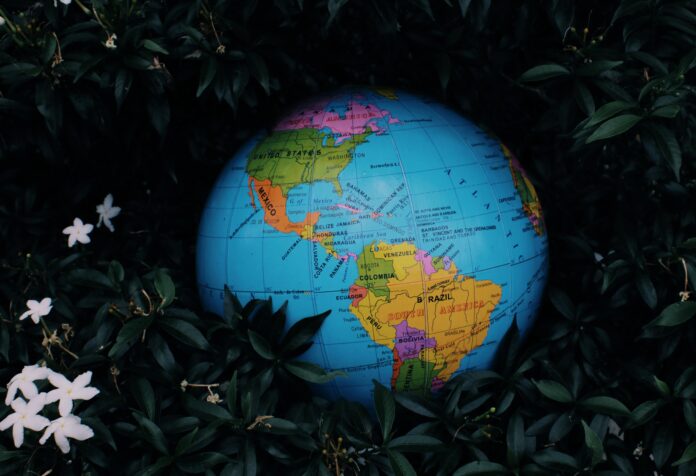
by
From being exposed to air pollution and contaminated water, to surviving hurricanes and storms, Black folks already know climate change is one of the greatest threats to life. The climate crisis disproportionately affects Black folk, and according to Pew Research Center, 57% of Black people say that environmental issues are a big problem in their local area — more than any other racial or ethnic group.
It’s no wonder, from the NAACP to the National Black Environmental Justice Network, Black activists are taking action. And there’s no time better to get engaged in climate justice than Earth Day.
“We have to understand that becoming committed to fighting our own fights around Earth Day and beyond ensures our future,” says Cynthia Swann, chief of staff to the executive vice president of campaigns and advocacy at Hip Hop Caucus.
Earthday.org’s official mission is “to diversify, educate and activate the environmental movement worldwide.” More than a billion people globally celebrate Earth Day every year. And that includes Black folk.
Despite this, a misguided stereotype exists that Black people don’t care about the environment and that Earth Day is something only white people do — cue the jokes about folks whose whole existence revolves around saving whales and preserving animal reserves, without any recognition or commitment to the wellness of Black people.
That perception is, in part, due to racism in the environmental movement and the way the first Earth Day played out.
We have to understand that becoming committed to fighting our own fights around Earth Day and beyond ensures our future. CYNTHIA SWANN, HIP HOP CAUCUS
Where Does Earth Day Come From?
In 1969, Wisconsin senator Gaylor Nelson visited the site of a massive oil spill in Santa Barbara, California. After seeing tar-coated beaches and dying marine animals and plants, Nelson decided to prompt a national conversation about the impacts of climate change. So he asked his staff to look into hosting environmental teach-ins at universities.
Many Activists Didn’t Include Black People
Historically, the environmental movement is rife with racism and exclusion. The Audubon Society and The Sierra Club both have founders with incredibly racist histories. John Muir, “the father of national parks,” used slurs and spoke down to Black and Indigenous folk.
How this racism played out in the days leading up to — and on — the first Earth Day can be found in the University of Pennsylvania’s Earth Day Project.
The project’s authors wrote that Black people in 1970 “viewed the environmental movement as another attempt by educated, affluent whites to escape the more pressing fight against racism by embracing a cause ‘everyone can support.’”
In addition, “state leader of the Black Economic Development Conference Muhammad Kenyatta described Earth Day as a distraction for the public’s attention from the issues of racism and the war in Vietnam.”
The project also noted that on April 14, 1970, Baltimore Sun columnist Ernest B. Ferguson wrote about how Richard G. Hatcher, the first Black mayor of steel mill-polluted Gary, Indiana, called out the exclusionary behavior he saw in the “roster of organizations planning to participate in Earth Day.”
But Ferguson went on to point out that “in St. Louis, a Black community work named Mrs. Freddie Mae Brown” organized some activities and used “Earth Day as a vehicle to show all who will listen just what the environment means to blacks in America.”
More than five decades later, as we lose our homes, businesses, and family members due to climate-related disasters, experts agree the future of Black folk depends on how we use Earth Day to continue pushing for climate justice.

